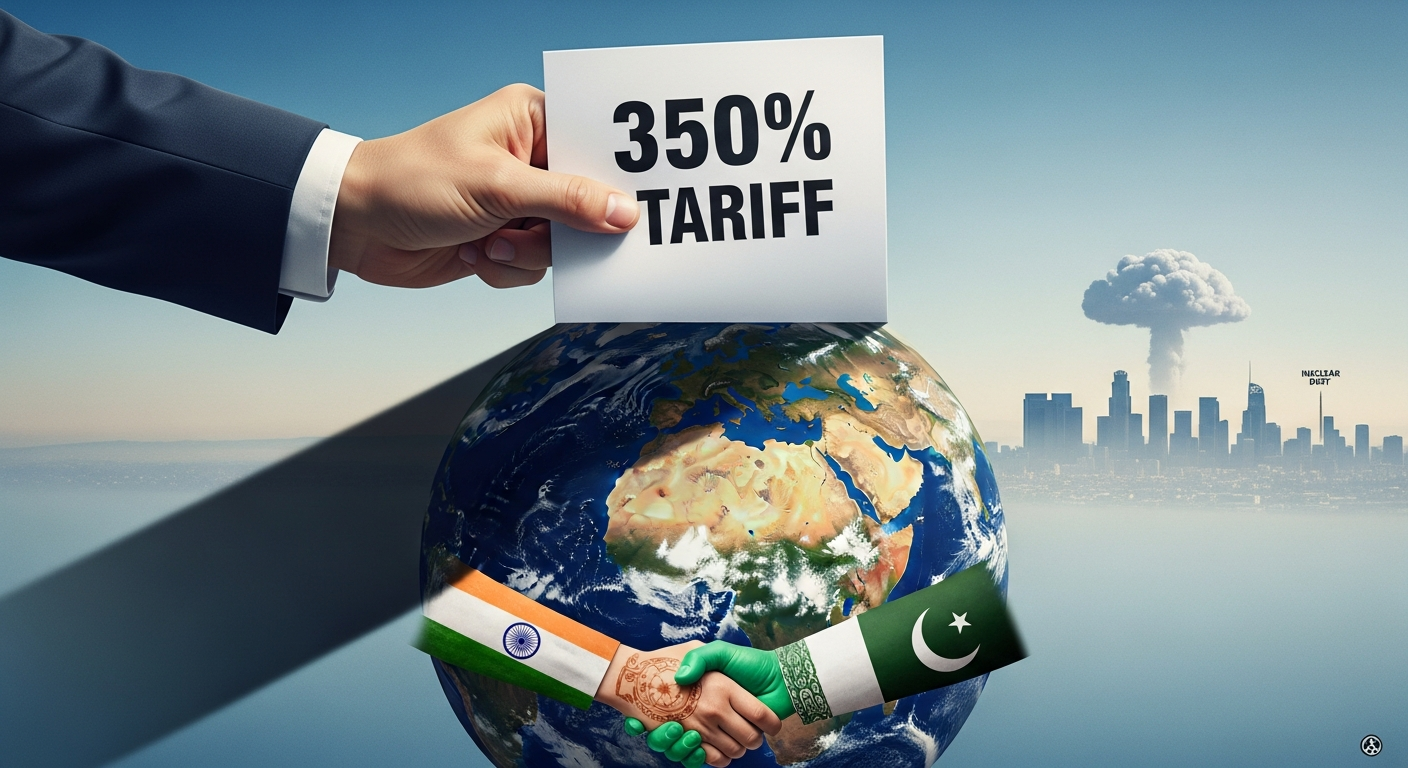
Recently, Donald Trump made headlines by once again taking credit for the India-Pakistan truce, claiming his threat of a massive 350% tariff averted a potentially catastrophic conflict, even invoking the specter of 'nuclear dust over LA' "Didn't want nuclear dust over LA': Trump takes credit for India-Pak truce again". This statement, while audacious, casts a spotlight on the intricate and often volatile relationship between economic leverage and geopolitical stability.
It brings me back to my earlier reflections on the nature of global economics as a battleground, particularly as I discussed in my blog, "It's an Era of tech Fights, world Economy is the Battleground". In that piece, I highlighted the "formidable challenges from escalating global tariff wars, primarily originating from the United States." The core idea I wanted to convey then, and which rings even truer now, is that economic pressures are not just financial tools; they are powerful instruments in international relations, capable of shaping outcomes, sometimes even preventing conflict, as Donald Trump suggests. I had already predicted the potential for such economic strong-arming to disrupt markets and force nations to recalibrate their strategies.
My insights into India's IT sector, which faces uncertainty from tariff impositions, underscore how deeply interconnected global economies are and how vulnerable they can be to unilateral actions. The mention of a 350% tariff is an extreme example, but it serves to illustrate the immense power that such economic threats can wield. Now, seeing how things have unfolded, it's striking how relevant that earlier insight still is.
Reflecting on it today, I feel a sense of validation for those earlier observations. The use of tariffs as a means to achieve a desired geopolitical outcome, even peace, raises critical questions: Is such peace sustainable if it's born out of economic coercion rather than genuine diplomatic resolution? What are the long-term implications for international trust and cooperation when economic stability can be so easily threatened? These are not simple answers, but they clearly hold value in the current context, and they urge us to revisit those earlier ideas, because they clearly hold value in the current context, and how we define and pursue global stability in an era dominated by complex economic dependencies.
Regards, Hemen Parekh
Of course, if you wish, you can debate this topic with my Virtual Avatar at : hemenparekh.ai






No comments:
Post a Comment